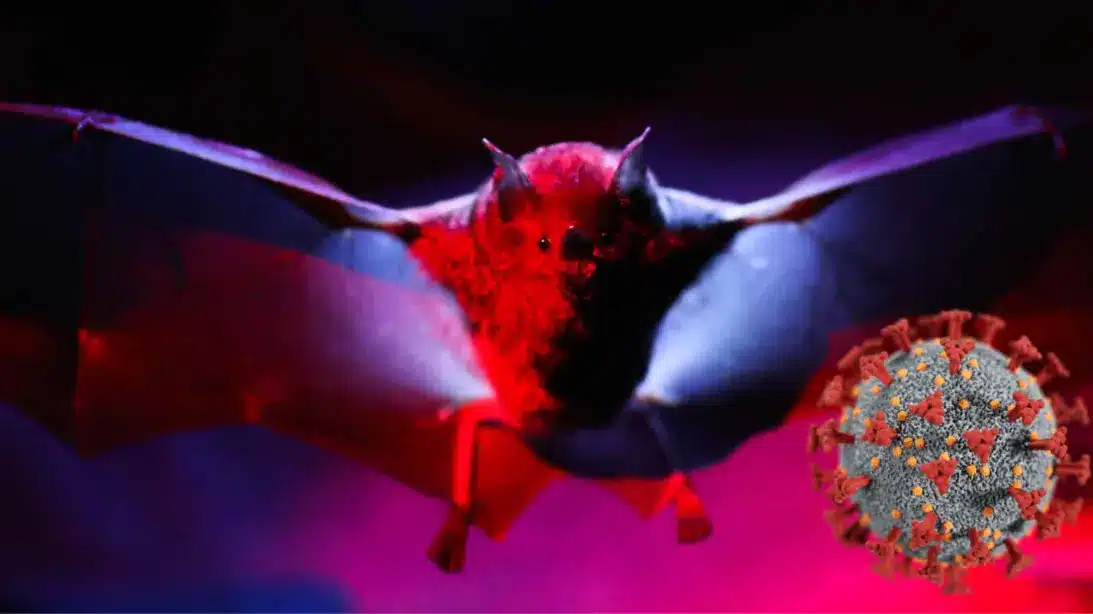A 14-year-old boy died in Kerala, India, after contracting the Nipah virus, a pathogen that raises alarm bells among the scientific community due to its “pandemic potential.” It is a virus that is transmitted through bats, inflames the brain, and has a mortality rate of up to 75%.
The young man suffered cardiac arrest after becoming infected. Meanwhile, another 60 people in the same Indian state are classified as “high-risk” after potentially coming into contact with the virus, which can cause a fatal fever that inflames the brain.
In this regard, Kerala Health Minister Veena George reported in a statement on Saturday that the government had issued orders to identify and isolate affected people. Meanwhile, Dr. Anoop Kumar, director of critical care medicine at Aster MIMS Hospital in Calicut, said that a positive case of Nipah had been diagnosed in a schoolboy, and people in close contact with him were being observed.
“There is a minimal probability of a Nipah virus outbreak at this stage,” he explained, adding that the situation will be monitored for the next seven to ten days.
According to the statement, 214 people who were in contact with the teenager were registered. Among them, 60 are in the “high risk” category, meaning they are more likely to get seriously ill if they contract the virus compared to the majority.
Along these lines, the relatives of the affected patient were kept in a local hospital for observation. Meanwhile, other individuals who may be at risk were asked to isolate themselves at home.
Also Read: The WHO confirmed the first death from bird flu in the world
What is the Nipah virus
Nipah is a zoonotic virus, meaning it can be transmitted from animals (usually bats and pigs) to humans.
1 through direct contact with bodily fluids such as blood or saliva. People can also contract the disease by eating contaminated food or through close contact with individuals who already have it, although these are rarer forms of transmission.
The virus can rapidly attack the respiratory and central nervous systems and has a mortality rate of up to 75%. Of those who survive, about 20% are left with long-term neurological conditions, including personality changes or seizure disorders.
In that sense, Dr. Rebecca Dutch, president of the department of molecular and cellular biochemistry at the University of Kentucky and world leader in the study of the virus, indicated in dialogue with The Sun that “the mortality rate of this virus is between “45 and 75%, depending on the outbreak, so it is much higher than that of COVID-19.”
Also Read: Zombie virus will turn the world into death?
The risk of a new pandemic
Nipah is one of the viruses that experts believe could start a new pandemic. In that sense, the World Health Organization (WHO) classified it as a “priority pathogen” with pandemic potential.
The country of Bangladesh is the main location of the virus, with outbreaks happening there nearly annually. In this regard, parts of Kerala are said to be the most at risk globally of contracting the virus. While Dutch said there are currently no Nipah outbreaks in the world, he noted that they occur periodically and that it is “extremely likely” that they will break out even further.
According to the Dutch, Nipah is a virus that could lead to new epidemics. The Nipah virus has several worrisome aspects. Many other viruses in that family (such as measles) transmit well to humans, so there is concern that a Nipah variant with greater transmission may emerge.
For his part, Dr. Jonathan Epstein, vice president of science and outreach at EcoHealth Alliance, explained to The Sun that experts are concerned about the potential of the virus. “We know very little about the genetic variety of Nipah-related viruses in bats, and what we don’t want to happen is for a strain to emerge that is more transmissible between people,” he said.
The virus is currently categorized by the US as a category C bioterrorist threat because “it could be designed for mass dissemination in the future.” Neither a drug nor a vaccine is currently available to treat or prevent Nipah.
In addition, according to a Reuters investigation from the previous year, Kerala, a tropical state that is rapidly urbanizing and losing trees, has “the ideal conditions for a virus like Nipah to emerge.”
Also Read: COVID-19: AstraZeneca withdraws its vaccine in the face of a “decline in demand”


